China-Taiwan meeting: Awkward questions Xi and Ma could ask
- Published
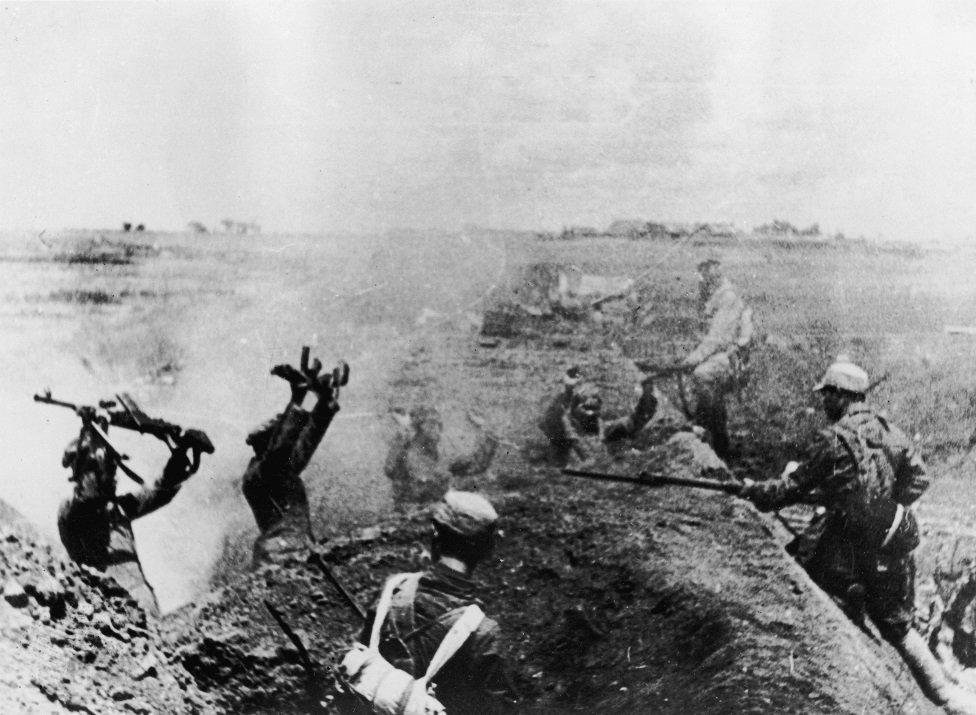
The Chinese civil war ended with a Communist victory and the defeated Nationalists went to Taiwan
On Saturday, for the first time since their bitter split at the end of the Chinese civil war in 1949, the leaders of China and Taiwan will meet.
This is on a par with US President Barack Obama meeting with Cuba's Raul Castro except, unlike Washington and Havana, the two sides still haven't normalised relations. In fact they haven't even signed a peace treaty and in 66 years they have taken very different paths.
No agreements will be signed, no joint statements made, but China's Xi Jinping and Taiwan's Ma Ying-jeou will have an hour-long meeting and a casual dinner afterwards. It could get awkward and here are some of the questions that could crop up.

Why do you still have missiles pointed at me?
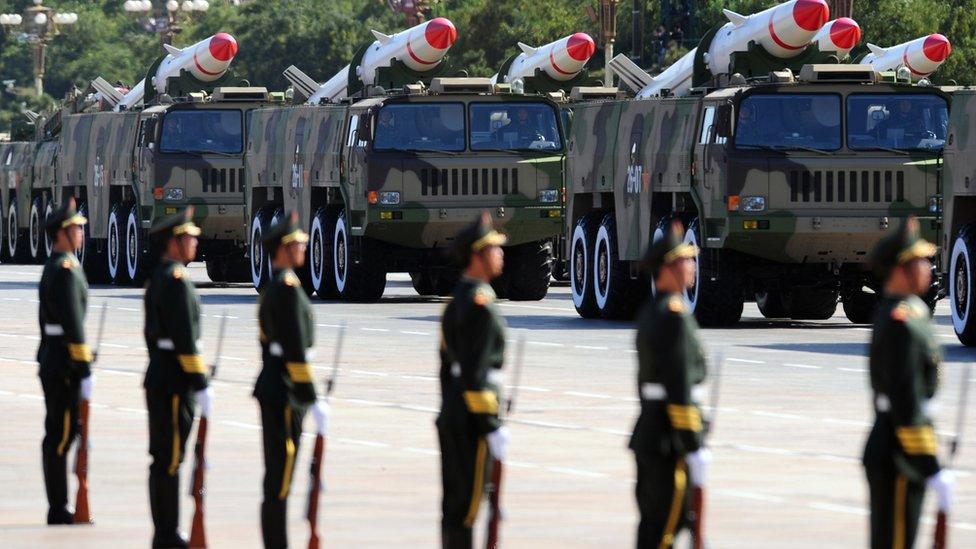
China has not renounced the use of force to take Taiwan back and its might is regularly put on display at military parades
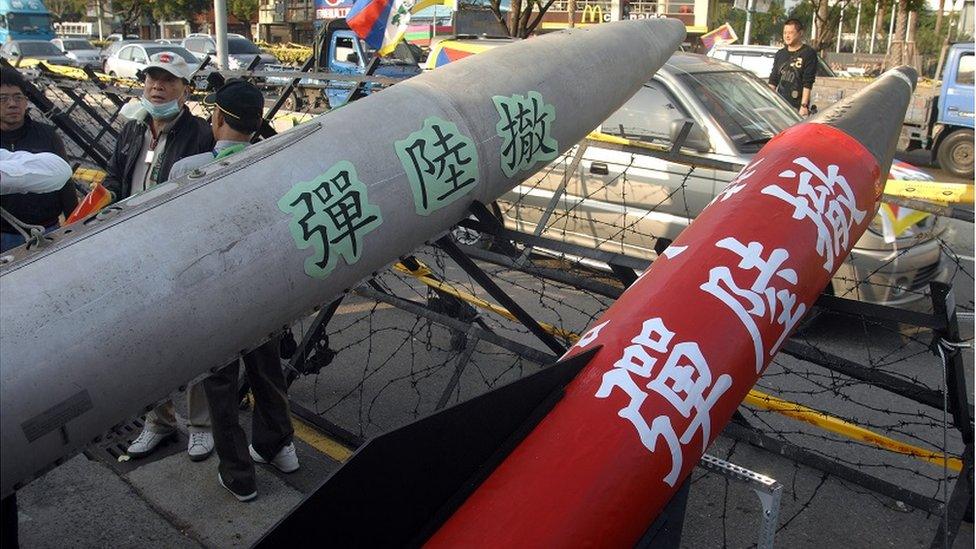
The missiles have also inspired protests in Taiwan in the past
China has hundreds of missiles targeted at Taiwan to warn the island against declaring formal independence. Beijing still considers Taiwan a province to be reunified with the mainland one day and has not renounced the use of force to take it back. In fact, one of the main reasons for its military build-up is to counter possible US assistance to Taiwan if Beijing were to try to take back militarily.
Mr. Ma would argue: "If you want to be friends, you must remove these missiles."
"Not that simple," Mr Xi might answer. Doing so could embolden pro-independence groups in Taiwan who want the island to be recognised as a completely separate country from China.

Elections? What are they?

Taiwan is proud of its democratic traditions
The meeting will take place less than three months before Taiwan holds presidential and legislative races, but truly democratic elections like these are not in China's vocabulary. Taiwan, on the other hand, has developed into a vibrant democracy and is proud of its system.
Over dinner, Mr Ma could share his low approval rating headaches with Mr Xi and even make jokes about how hard it is to finish a speech when protesters are trying to throw shoes at him. Mr Xi might just politely smile and think to himself: "And you wonder why we run things like we do?"

Why bother with public opinion?
Mr Xi will be eager to push relations forward. During Mr Ma's seven years in office, the two sides have signed many agreements - from those that have allowed first-ever direct flights to ones that bring millions of Chinese tourists to Taiwan each year, not to mention tariff-cutting trade deals.
China is eager to link Taiwan's economy and society even closer to the mainland's, and begin talking about unification.
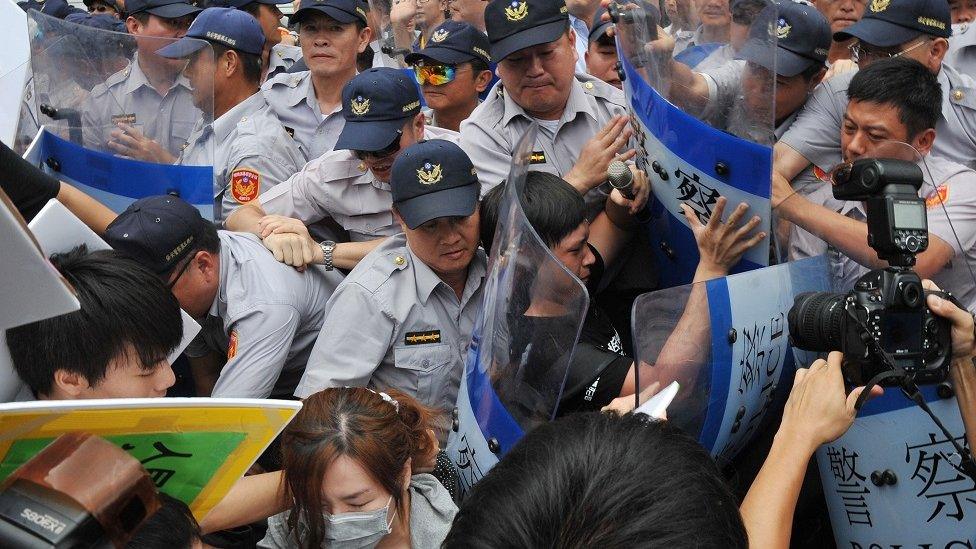
Previous meetings betweens Chinese and Taiwanese officials have inspired protests in the past
But Mr Ma will have to explain that public opinion does not support more deals and such talks at the moment. Many people are worried too many deals signed too quickly and without enough public oversight may make the island over-dependent on China and vulnerable to unification pressures.
Mr Ma might explain to Mr Xi: "In Taiwan, unlike mainland China, public opinion matters a lot. That is how I got my job in the first place."

When can I visit?
Like many Chinese people who consider Taiwan the long-lost sibling they must see at least once in their lifetime, Mr Xi would want to eventually travel to "our treasured island" which is what many Chinese people call Taiwan.
But Mr Ma will not be able to extend the invitation. That would be asking for trouble. Given China's motive for developing stronger ties, Taiwanese not in favour of this would simply use it as a chance to protest, and perhaps throw shoes at Mr Xi.
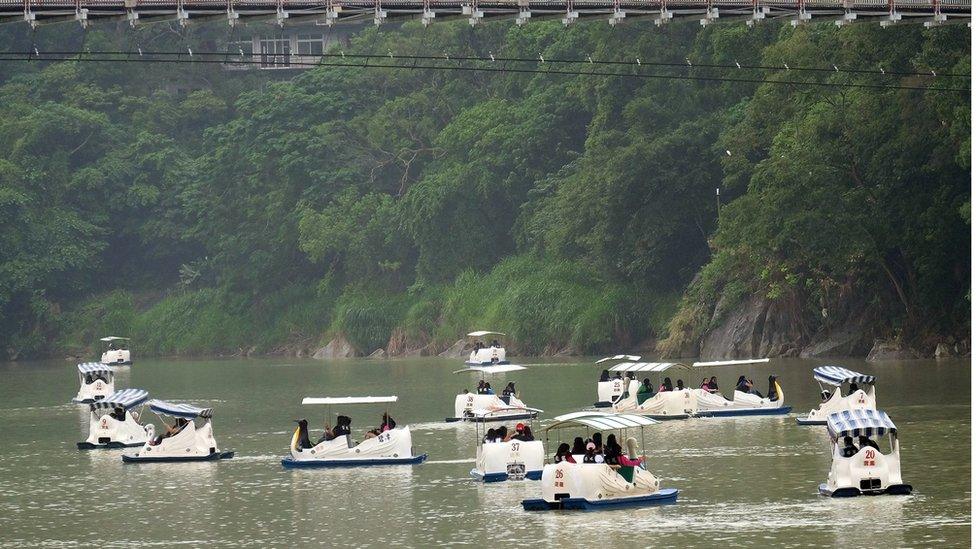
The "treasured island" is a sentimental destination for many tourists from mainland China

Can we do this again sometime?
Mr Ma says the past seven years have brought about the most stable and peaceful period in cross-strait relations in 66 years. One of his hopes before his presidency ends next May is to use these talks to institutionalise meetings between leaders of the two sides so that relations will stay on the right track, and the two sides can have dialogue at the highest level, regardless of which political party comes into power in Taiwan.
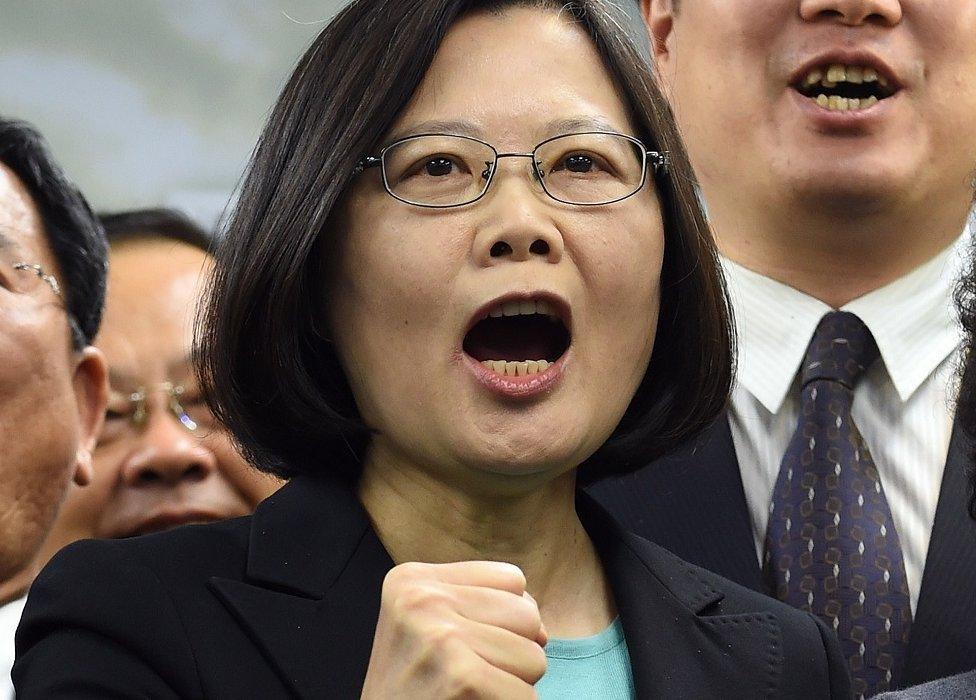
Tsai Ing-wen from the pro-independence opposition party is unlikely to want to further cement ties
But Mr Xi would probably say: "That all depends on whether the next leader agrees to our condition." And the condition is to accept that Taiwan and mainland China are part of one China. So far, the candidate tipped to win, Tsai Ing-wen from the pro-independence opposition party, has refused to do that.

Who pays for dinner?
It's almost sacrilegious in the shared Chinese culture of Taiwan and China to split the bill in a formal banquet, but at the Singapore dinner, the two sides will have to deal with the awkward moment when the bill comes.
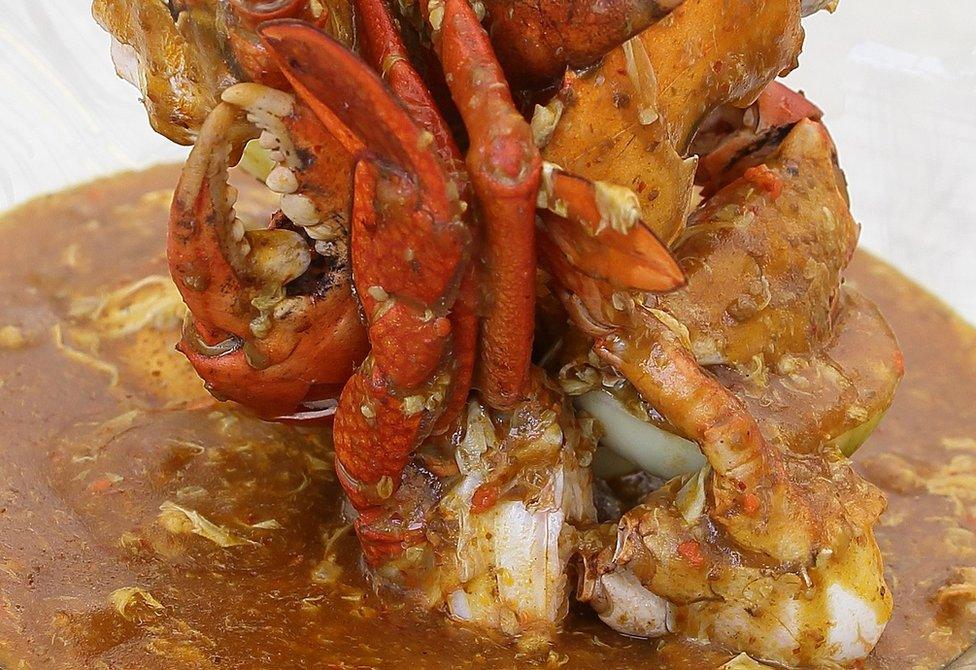
The leaders will be splitting the bill for Saturday's meal - an informal dinner, which means they could opt for Singapore's famous chilli crab
They've decided to split it because not doing so would give the impression that one is a host and the other a guest, and that they are not meeting on an equal level. And that would cause trouble for Mr Ma, because he's facing domestic pressure not to give any suggestion that Taiwan is a lesser, weaker party in the talks.
But while some think Mr Ma shouldn't meet Mr Xi, others believe two former enemies agreeing to talk can only be a good thing. They hope the talks can raise mutual understanding and trust - and perhaps that will happen over a few glasses of Singapore Sling.